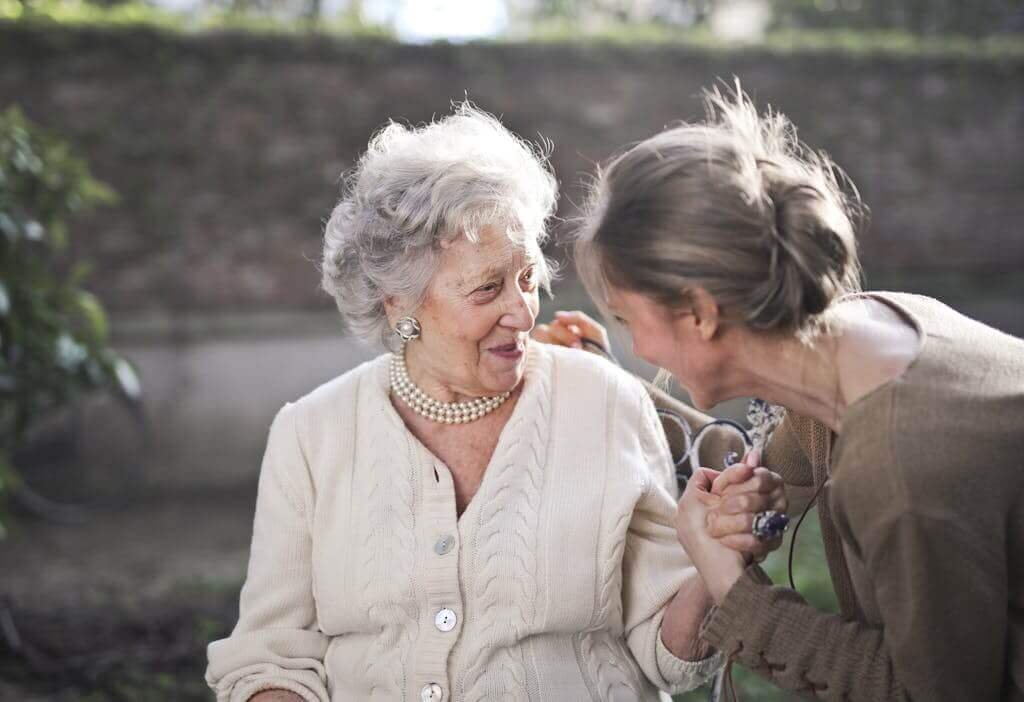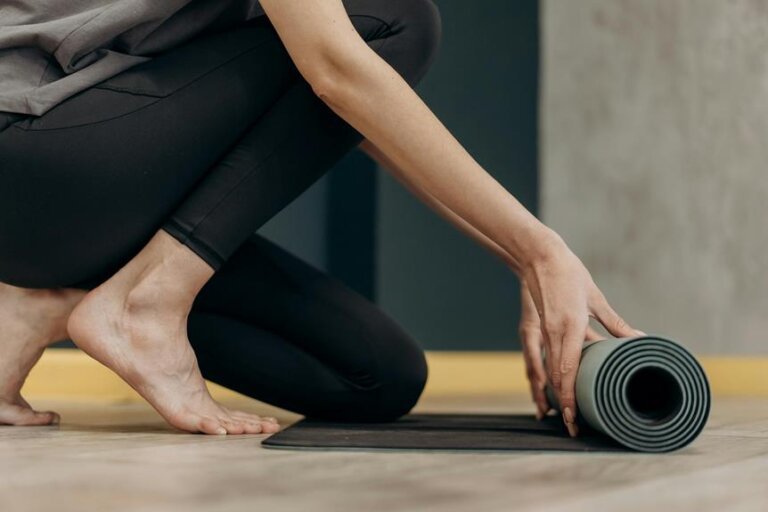Mindfulness and Meditation for Seniors: Enhancing Fitness and Well-Being
You might think that mindfulness and meditation are practices more suited for the younger crowd, but as a senior, you can benefit greatly from incorporating these techniques into your daily routine.
By focusing on the present moment and cultivating a sense of inner peace, seniors can enhance their overall fitness and well-being.
Interested to explore how mindfulness and meditation can positively impact your physical and mental health as you embrace the golden years of your life?
Benefits of Mindfulness for Seniors
When practicing mindfulness, seniors can experience a range of benefits that contribute to their overall well-being and quality of life. One significant advantage is improved mental health. By focusing on the present moment and letting go of worries about the past or future, seniors can reduce stress and anxiety levels. This can lead to better emotional regulation and an increased sense of calmness.
Additionally, mindfulness can enhance cognitive function in seniors. Regular practice has been linked to improved memory, attention span, and decision-making skills. This can be particularly beneficial for older adults looking to maintain their mental sharpness and cognitive abilities as they age.
Furthermore, mindfulness can also have positive effects on physical health. Seniors who practice mindfulness may experience reduced inflammation, lower blood pressure, and improved sleep quality. These physical benefits contribute to an overall sense of well-being and vitality in older individuals.
Incorporating Meditation Into Daily Life
As a senior, you can experience numerous benefits from incorporating meditation into your daily routine. Simple tips like finding a quiet space, setting a regular time, and starting with short sessions can help you establish a consistent practice.
Additionally, mindful breathing exercises can enhance the calming effects of meditation and promote overall well-being.
Benefits of Meditation
Incorporating meditation into your daily routine can lead to a multitude of benefits for seniors. Regular meditation practice has been shown to reduce stress, anxiety, and improve overall mental well-being.
By incorporating mindfulness into your daily life, you can enhance your focus, memory, and cognitive functions. Meditation can also help in managing chronic pain and improving sleep quality, which are common issues for seniors.
Additionally, practicing meditation can promote emotional stability, increase self-awareness, and foster a sense of inner peace and contentment. It provides a space for reflection, relaxation, and rejuvenation, allowing you to navigate the challenges of aging with a calmer and more centered approach.
Start reaping the benefits of meditation today for a healthier and more balanced life.
Practical Meditation Tips
Enhance your daily routine by integrating practical meditation tips to incorporate mindfulness into your life effortlessly.
Begin by setting aside a specific time each day for meditation. Choose a quiet, comfortable spot where you won't be disturbed.
Start with short sessions, gradually increasing the duration as you become more comfortable. Focus on your breath or a simple mantra to anchor your attention. Keep a straight posture to stay alert and attentive.
If your mind wanders, gently bring your focus back without judgment. Consistency is key, so aim to practice regularly.
Consider using guided meditation apps or attending group sessions for added support. By incorporating these practical tips, you can cultivate mindfulness and enjoy its benefits in your daily life.
Mindful Breathing Exercises
To deepen your mindfulness practice, start integrating mindful breathing exercises into your daily routine. Mindful breathing involves focusing on your breath to anchor yourself in the present moment.
Find a comfortable position, close your eyes, and take a few deep breaths. Notice the sensation of the air entering and leaving your body. As thoughts arise, gently guide your attention back to your breath.
You can practice mindful breathing while sitting, standing, or even walking. Set aside a few minutes each day to engage in this practice, gradually increasing the duration as you become more comfortable.
Mindful breathing exercises can help reduce stress, increase mental clarity, and promote overall well-being.
Improving Physical Health Through Mindfulness
By practicing mindfulness techniques regularly, seniors can boost their physical health and overall well-being. Mindfulness can have a positive impact on various aspects of physical health, including reducing stress levels, improving sleep quality, and enhancing overall mobility and flexibility. When you engage in mindfulness practices such as body scans or mindful movement exercises, you can become more attuned to your body's needs and signals. This increased awareness can help you address any physical discomfort or pain more effectively.
Mindfulness can also aid in managing chronic conditions such as arthritis or high blood pressure by promoting relaxation and reducing inflammation in the body. By incorporating mindfulness into your daily routine, you may experience improved balance, coordination, and a strengthened immune system. Additionally, mindfulness can enhance your ability to cope with physical challenges that come with aging, fostering a greater sense of resilience and well-being. Engaging in mindful activities like yoga or tai chi can further support your physical health by promoting strength, endurance, and overall vitality.
Mental Well-Being and Meditation Practices
You can experience improved mental well-being through meditation practices. By incorporating mindfulness techniques into your routine, you may notice reduced stress and increased relaxation.
The benefits of meditation extend beyond just physical health, offering a holistic approach to well-being.
Benefits of Meditation
Engaging in regular meditation practices can significantly enhance mental well-being for seniors. Meditation helps calm the mind, reduce stress, and improve focus. By incorporating meditation into your routine, you can experience reduced anxiety levels and increased feelings of overall contentment.
Seniors who meditate often report improved emotional stability and a greater sense of mindfulness in their daily lives. This practice can also enhance cognitive function, memory retention, and mental clarity.
Furthermore, meditation provides a space for introspection and self-awareness, allowing seniors to better understand their thoughts and emotions. Embracing meditation as a regular practice can lead to a more balanced and harmonious mental state, promoting a greater sense of well-being as you age.
Techniques for Mindfulness
Meditation techniques for mindfulness can vary in approach and focus, offering seniors a diverse array of tools to enhance their mental well-being. One popular method is focused breathing, where you concentrate on your breath to anchor yourself in the present moment.
Body scan meditation involves systematically shifting your attention through different parts of your body, promoting relaxation and body awareness.
Loving-kindness meditation cultivates compassion and positivity towards yourself and others. Guided visualization allows you to imagine peaceful scenes or positive outcomes to reduce stress and anxiety.
Mindfulness meditation, focusing on observing thoughts and sensations without judgment, can help improve emotional regulation and overall well-being. Exploring these diverse techniques can help you find the one that best suits your needs and preferences.
Mindfulness Techniques for Enhanced Fitness
Implementing mindfulness techniques can significantly enhance your fitness routine by fostering a deeper mind-body connection and increasing awareness of your physical movements. When engaging in physical activities such as yoga, walking, or strength training, mindfulness can help you focus on the present moment and tune into how your body is feeling. This heightened awareness allows you to make adjustments to your posture, breathing, and movements, leading to improved performance and reduced risk of injury.
During your workouts, try to pay attention to the sensations in your body, the rhythm of your breath, and the quality of your movements. By being fully present in the exercise you're doing, you can enhance coordination, balance, and overall body awareness. Mindfulness can also help you stay motivated and maintain a positive attitude towards physical activity, making it more enjoyable and sustainable in the long run.
Incorporating mindfulness techniques into your fitness routine doesn't require extra time or equipment; it simply involves being present and attentive while you move your body. By practicing mindfulness during exercise, you can enhance the effectiveness of your workouts and promote holistic well-being.
Meditation for Stress Management in Seniors
Enhancing your well-being through mindfulness techniques in your fitness routine can also pave the way for incorporating meditation as a powerful tool for stress management as a senior. Meditation offers seniors a profound way to alleviate stress and promote overall mental and emotional wellness.
As seniors, life can bring about various stressors, such as health concerns, loss of loved ones, or financial worries. Engaging in meditation allows you to cultivate a sense of inner peace and calm amidst these challenges. By practicing meditation regularly, you can learn to observe your thoughts and feelings without judgment, leading to a reduction in stress levels.
Moreover, meditation has been shown to lower cortisol levels, the hormone associated with stress, and decrease anxiety symptoms. This ancient practice can help you manage stress-related conditions like high blood pressure, insomnia, and anxiety disorders. By incorporating meditation into your daily routine, you can enhance your resilience to stress and improve your overall quality of life as a senior.
Mindfulness for Overall Wellness and Aging
Regularly practicing mindfulness can significantly contribute to your overall wellness and aging journey. Mindfulness involves focusing your attention on the present moment without judgment. By incorporating mindfulness into your daily routine, you can experience various benefits that positively impact your well-being as you age.
Engaging in mindfulness practices such as deep breathing, body scans, or mindful walking can help reduce stress levels, lower blood pressure, and improve sleep quality. These practices also enhance your cognitive function, memory retention, and overall mental clarity. As you cultivate mindfulness, you become more attuned to your body's needs, allowing you to make healthier choices regarding nutrition, exercise, and self-care.
Furthermore, mindfulness promotes emotional resilience, enabling you to navigate life's challenges with greater ease and acceptance. It fosters a sense of gratitude, compassion, and interconnectedness with others, combating feelings of loneliness or isolation commonly associated with aging. Embracing mindfulness empowers you to savor the present moment, cultivate a positive outlook on life, and age gracefully with a renewed sense of vitality and purpose.
Frequently Asked Questions
Can Seniors With Physical Limitations Still Benefit From Mindfulness and Meditation Practices?
Yes, seniors with physical limitations can benefit greatly from mindfulness and meditation practices. These techniques offer mental and emotional well-being benefits that can be enjoyed regardless of physical constraints, promoting overall health and vitality.
How Can Mindfulness and Meditation Help Seniors Cope With Grief and Loss?
Mindfulness and meditation can provide seniors with tools to cope with grief and loss. By focusing on the present moment, acknowledging emotions, and practicing self-compassion, you can navigate these difficult experiences with greater resilience and peace.
Are There Specific Mindfulness Techniques That Are More Suitable for Seniors With Cognitive Impairments?
When dealing with cognitive impairments, consider simpler mindfulness practices like focused breathing or body scan meditations. These techniques can enhance well-being without overwhelming you. Remember, even small moments of mindfulness can make a big difference in your daily life.
Can Mindfulness and Meditation Practices Help Improve Sleep Quality in Seniors?
Mindfulness and meditation practices can significantly improve sleep quality in seniors. By calming the mind and reducing stress, these techniques promote relaxation, leading to better sleep patterns and overall well-being. Try incorporating them into your routine.
How Can Seniors Overcome Resistance or Skepticism Towards Mindfulness and Meditation Practices?
Overcoming resistance or skepticism towards mindfulness and meditation is possible. Start with small steps, like deep breathing exercises or short guided sessions. Remember, many seniors find these practices beneficial. Give it a try and see the difference.
Conclusion
In conclusion, mindfulness and meditation can greatly benefit seniors by improving their physical health, mental well-being, and overall wellness. By incorporating these practices into daily life, seniors can enhance their fitness levels, manage stress more effectively, and age gracefully.
So, why not take a moment to pause, breathe, and embrace the peaceful power of mindfulness? It's like a soothing balm for the soul, calming the stormy waters of aging.






